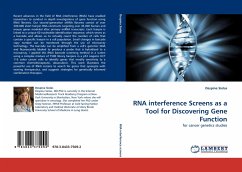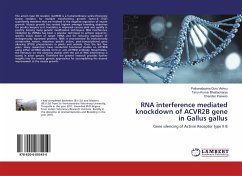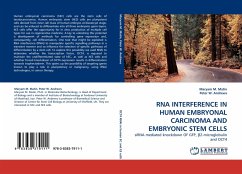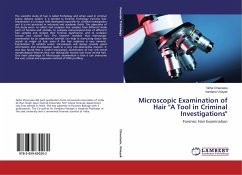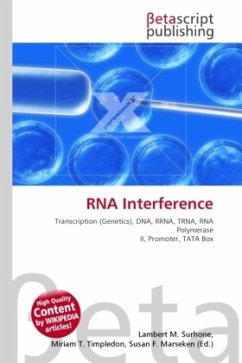Recent advances in the field of RNA interference (RNAi) have enabled researchers to conduct in depth investigations of gene function using RNAi libraries. Our second-generation shRNA libraries consist of over 200,000 short hairpin RNA constructs targeting over 45,000 human and mouse genes modeled after primary miRNA transcripts. Each hairpin is linked to a unique 60 nucleotide identification sequence, which serves as a barcode and allows us to virtually count the number of cells that contain a specific hairpin in a cell population. Small changes in barcode copy number can be monitored through the use of microarray technology. The barcode can be amplified from a cell's genomic DNA and fluorescently labeled to produce a probe that is hybridized to a microarray. I applied this RNAi barcode screening method in a screen using a complex mixture of 7500 library hairpins in a p53 isogenic HCT 116 colon cancer cells to identify genes that modify sensitivity to a common chemotherapeutic, doxorubicin. This work illustrates the powerful use of RNAi screens to search for genes that synergize with existing therapeutics, and suggests strategies for genetically informed combination therapies.
Bitte wählen Sie Ihr Anliegen aus.
Rechnungen
Retourenschein anfordern
Bestellstatus
Storno

